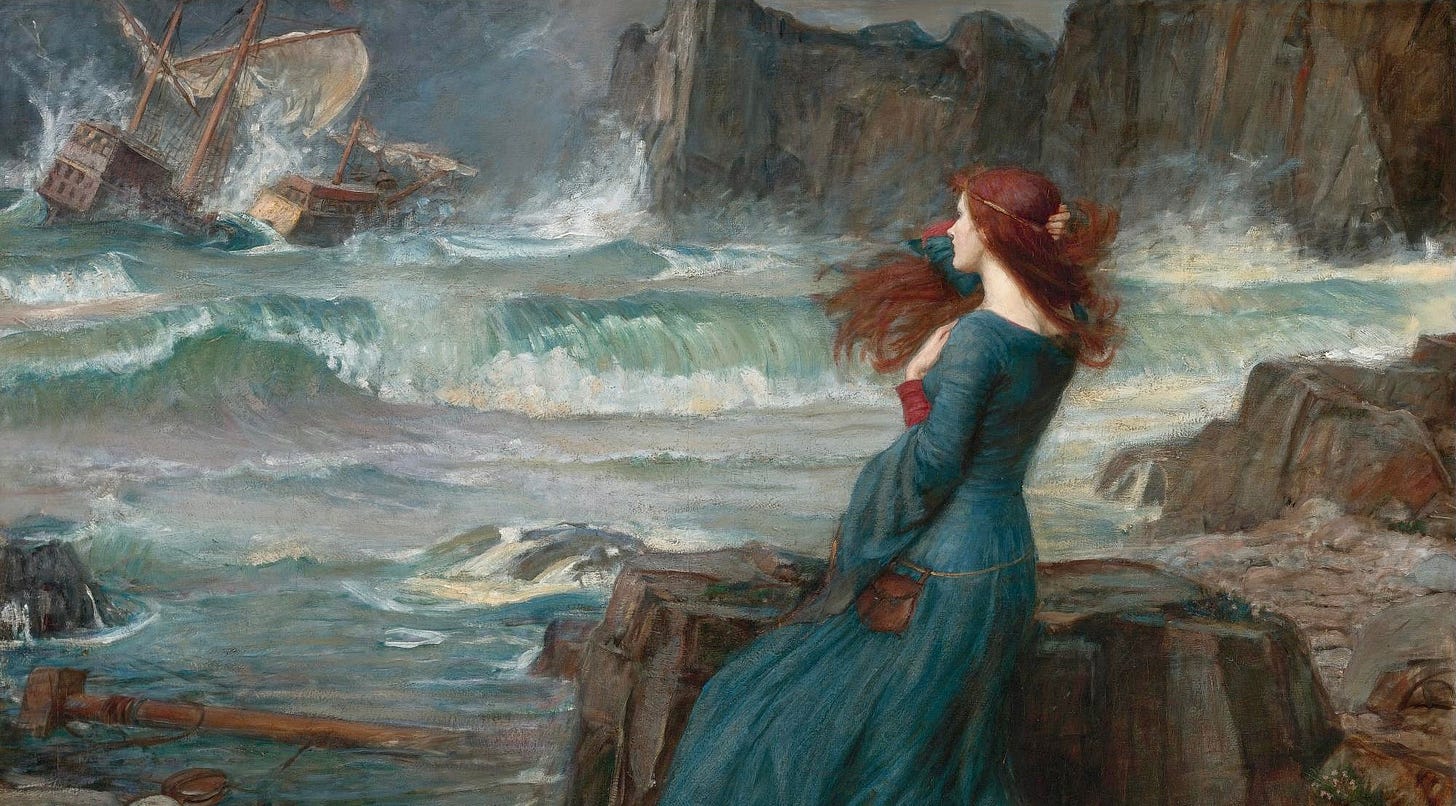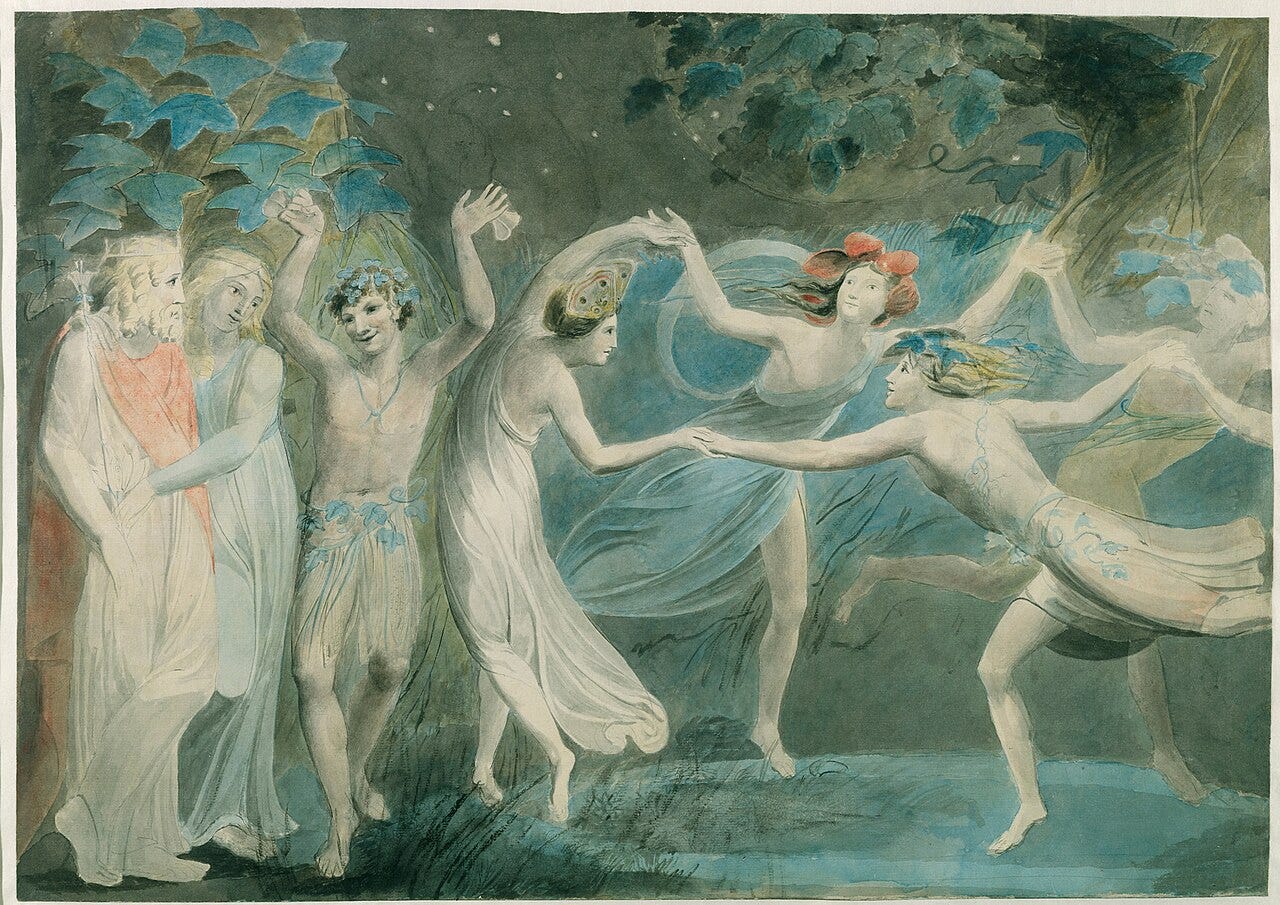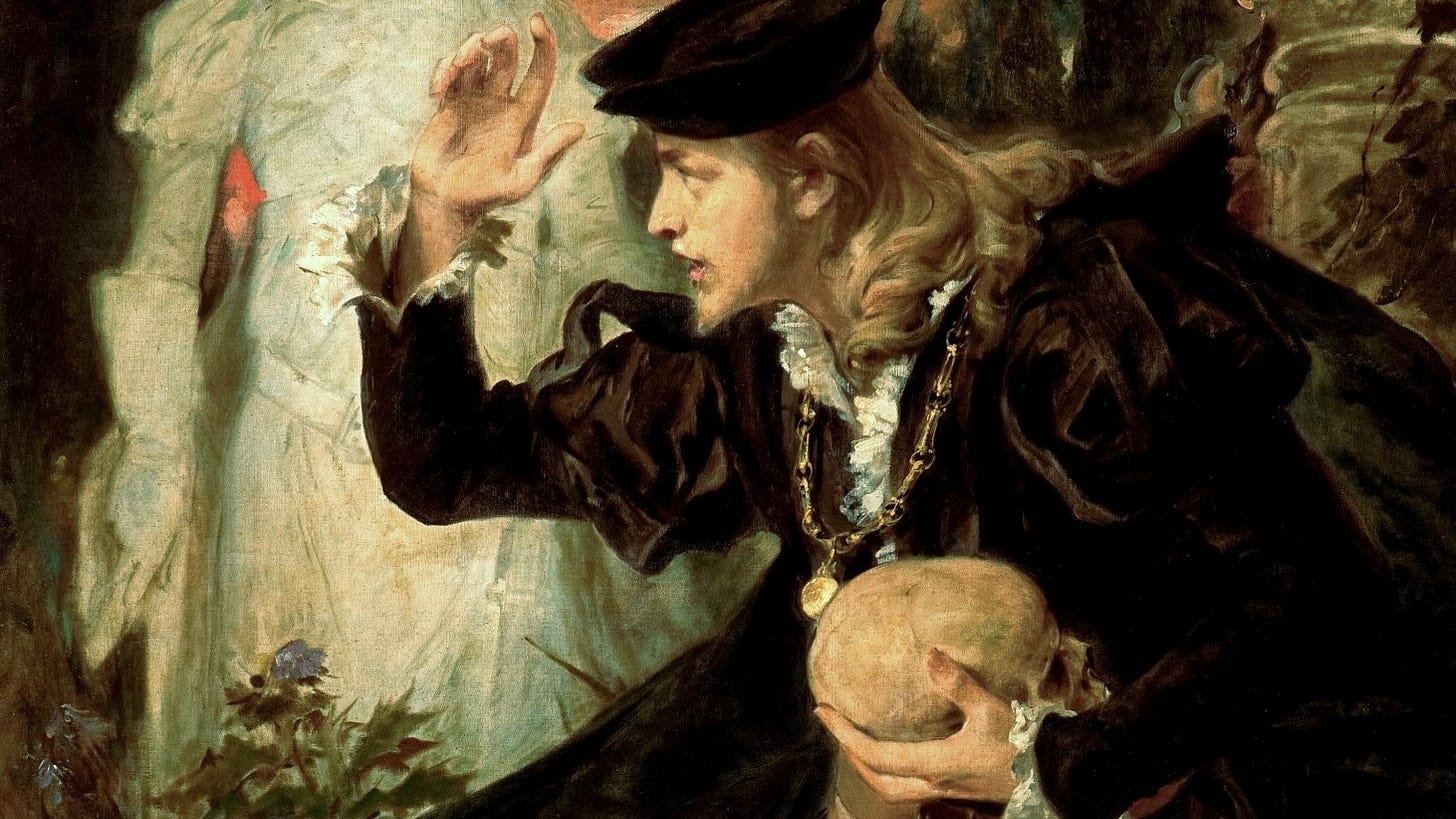Shakespeare’s influence is everywhere, and his stories shape modern films, television, and literature. 10 Things I Hate About You reimagines The Taming of the Shrew, Disney’s The Lion King draws from Hamlet, and House of Cards channels the cunning ambition of Richard III. The Bard’s legacy is woven into the fabric of our culture, often in ways we don’t even notice.
Yet, despite this, the question remains — why should you still read him today?
Some dismiss Shakespeare as an academic relic, claiming his plays are too dense, too outdated, or too far removed from modern life. But the endurance of his work isn’t a matter of tradition or obligation — his plays survive because they offer some of the sharpest, most enduring insights into human nature ever written.
Today we reflect on Shakespeare’s relevance to the modern world: what makes him great, and what his plays can teach you about your own human nature.
In other words, you’ll get to see why, over 400 years after his death, Shakespeare is still worth reading…
Reminder, you can support our mission and get our members-only content every weekend: in-depth articles, podcasts and great book breakdowns.
This Saturday, we unravel Shakespeare’s final play — The Tempest. It’s a philosophical dive into the wisdom, politics, and nature of power…
Join as a member to read it, and help support our mission 👇
Shakespeare’s Eternal Relevance
Why is Shakespeare still relevant? There are many potential responses to this question, but the short answer is this:
Shakespeare remains relevant because human nature hasn’t changed.
The world looks different than it did 400 years ago, but people still struggle with ambition, love, betrayal, and power. The themes at the heart of Shakespeare’s plays are the same forces shaping our world today.
Take Macbeth. At first glance, you may have little in common with the title character, a 16th-century Scottish nobleman. But the play Macbeth isn’t just about medieval power struggles — it’s about how ambition turns to obsession, how guilt eats away at the conscience, and how unchecked desire leads to self-destruction.
It’s about a man who makes one bad choice, then another, until he feels he can’t turn back and has no choice but to abandon himself to evil. His story is universal because it reflects the decisions, compromises, and rationalizations that define all human lives.
This is just one element of what makes Shakespeare’s characters so compelling. They aren’t defined by their time or their setting, but by the decisions they make. The power-hungry upstart, the cunning survivor, the impulsive lovers — these characters exist just as much today as they did in Elizabethan England, when Shakespeare first wrote them into existence..
Universal Themes
Why do Shakespeare’s plays continue to be translated into over 100 languages and performed worldwide? Because the struggles he wrote about are as relevant now as they were centuries ago.
Corruption in power is no modern issue — just look at Measure for Measure, where Angelo exploits his authority for personal gain. The recklessness of young love is hardly a new concern, as Romeo and Juliet were making impulsive choices long before modern romantics.
If you think self-doubt and hesitation are unique to our twenty-first century world, then consider Hamlet, who spends an entire play wrestling with his conscience. Even the more surreal elements of Shakespeare’s plays — like a man being turned into a donkey and seduced by a fairy queen in A Midsummer Night’s Dream — tap into deeper human truths about illusion, transformation, and desire.
The poet Maya Angelou famously described her experience first encountering Shakespeare as a young girl growing up in Stamps, Arkansas. Reading his Sonnet 29, Angelou saw her own experience reflected in his poetry — so much so that she remarked Shakespeare "must be a black girl,” because his words so deeply captured her own feelings.
In other words, Shakespeare’s art persists because it captures experiences that transcend time. His themes don’t belong to the past — they belong to anyone who has ever faced fear, ambition, or heartbreak.
The Impact of Reading Shakespeare
Acknowledging Shakespeare’s relevance is one thing, actually reading and studying his plays is another. His language is complex, and his plots demand attention — but the effort is worth it. Here are just three reasons why:
He Reveals Who You Are
Shakespeare described theater as “holding a mirror up to nature.” His works reflect who we are, not just as individuals, but as societies. His plays reveal our strengths, weaknesses, and contradictions. They challenge us to think critically about power, love, and morality. The more you read Shakespeare, the more you recognize his world as your own.
His Wisdom Transcends Time
Few works of art last centuries, but Shakespeare’s have. His stories are still performed, discussed, and adapted precisely because they speak to something universal.
While modern books and films may entertain, most won’t be relevant in 50 years — let alone 400. Shakespeare’s plays endure because they aren’t built on passing trends. They reveal truths about human nature that remain constant.
He Lets You Experience Without Consequence
One of the greatest values of literature is that it allows you to live through the choices of others. In Shakespeare, you can witness ambition’s downfall without losing everything like Macbeth. You can feel the weight of hesitation without Hamlet’s regret. You can experience jealousy’s destruction without Othello’s tragic end.
Shakespeare’s characters, and specifically those of his tragedies, make mistakes so that you don’t have to. Their stories offer lessons that can help you navigate your own world with greater wisdom.
The Forever Bard
This is by no means an exhaustive account of why you should read Shakespeare. But at the very least, it should help you understand the reasons for his lasting relevance.
The Bard’s works aren’t just relics of literary history — they continue to shape the way we think about power, identity, and the human condition. His characters aren’t distant figures of the past, but reflections of our own ambitions, flaws, and desires.
Shakespeare’s art endures because it continues to ask the questions that define us. This is why we read Shakespeare — not out of obligation, but because his voice still speaks to us, across centuries and cultures, reminding us of the timeless and unchanging nature of the human experience.
Thank you for reading! 🙏
If you want to support our mission to uncover Truth, Goodness and Beauty, join as a paid subscriber and get access to our entire archive of members-only content.
This Saturday, we break down Shakespeare’s final play — The Tempest. It’s a philosophical dive into the wisdom, politics, and nature of power…











Any work of literature or art that remains relevant over the centuries speaks, with great effect, to enduring, unchanging elements of human nature and the human condition.
You forgot to mention the beauty of the language!